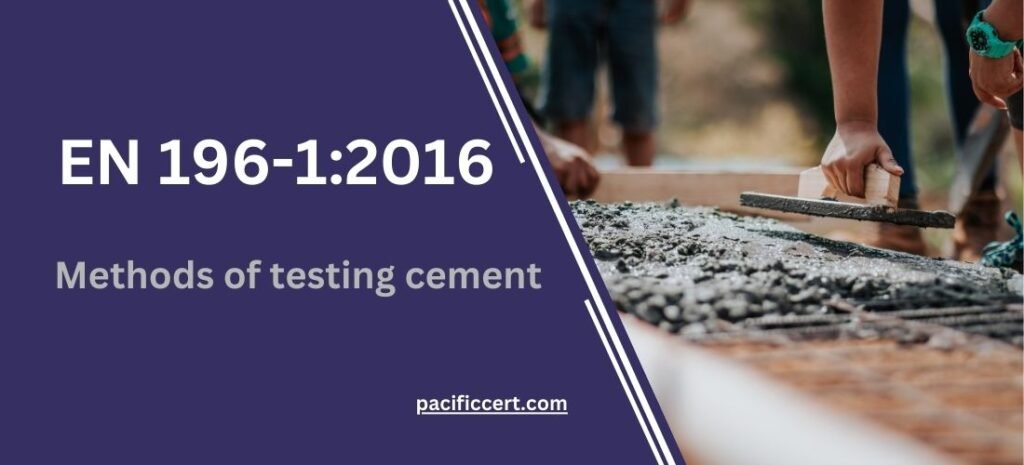
What is EN 196-1:2016 – Methods of testing cement?
EN 196-1:2016 specifies the methods for testing cement. It provides standardized procedures for determining the physical and mechanical properties of cement. Such as its strength, setting time, and soundness.
The standard covers a range of tests that are commonly used in the cement industry. Including:
· Fineness test
· Consistency test
· Setting time test
· Soundness test
· Compressive strength test
· Tensile strength test
· Flexural strength test
The standard specifies the equipment and procedures that should be used to conduct each of these tests, as well as the reporting requirements for the results. Compliance with the EN 196 standard is important for ensuring the accuracy and consistency of cement testing results across the European Union, as well as for meeting regulatory requirements and ensuring product quality.
Requirements of EN 196-1:2016
Sample Preparation: The sample of cement used for testing must be representative of the material being produced or used. So, The sample should be collected and prepared in accordance with the standard’s procedures.
Testing Equipment: The testing equipment must be calibrated and maintained in accordance with the standard’s requirements. To ensure accurate and consistent results.
Testing Conditions: The testing should be conducted under controlled conditions. Including temperature and humidity, as specified by the standard.
Also, Testing Procedures: The standard specifies the testing procedures to be used for each of the tests covered. Including the number of samples required, the testing equipment to be used, and the procedures for calculating and reporting the results.
Finally, Reporting Results: The results of the testing should be reported in accordance with the standard’s requirements. Including units of measurement, the level of precision required, and any necessary corrections or adjustments.
Benefits of EN 196-1:2016
Standardization: The standard provides a uniform and consistent methodology for testing cement, which helps to ensure that the results are accurate and comparable across different laboratories and testing facilities. This promotes quality assurance and allows for more reliable comparisons between different cement products.
Compliance: Compliance with the EN 196-1:2016 standard is mandatory for cement producers and testing facilities in the European Union, which helps to ensure that all products meet the same high standards of quality and performance.
Quality control: The standard allows for better quality control of cement products, which can help to identify any defects or problems in production before they become larger issues. Thus, this can help to reduce costs associated with product recalls, repairs, or liability claims.
Customer satisfaction: By adhering to the EN 196-1, cement producers can provide their customers with confidence that the product they are purchasing has been tested using a standardized methodology. And meets the required specifications.
Also, Safety: By testing cement for its physical and mechanical properties, the standard can help to identify any potential safety hazards associated with the product. Such as inadequate strength or durability, and prevent accidents or injuries from occurring.
Therefore, Use of the EN 196-1:2016 standard for testing cement can promote quality assurance, ensure compliance with regulatory requirements, improve customer satisfaction. Also, enhance safety in the production and use of cement products.
Who needs EN 196-1:2016 – Methods of testing cement?
Anyone involved in the production or testing of cement in the EU must comply with the requirements set out in EN 196-1. This includes manufacturers of cement. As well as testing facilities, research organizations, and regulatory bodies responsible for ensuring compliance with quality and safety standards.
In addition, The standard may be relevant to construction companies, architects, engineers, and other professionals involved in the specification and use of cement products, as they rely on the accuracy and consistency of cement testing results. To ensure the safety and quality of their projects.
Therefore, Anyone involved in the production, testing, or use of cement in the European Union should be familiar with and comply with the requirements of EN 196-1:2016. To ensure that cement products meet the required standards of quality and safety.
Pacific Certifications is accredited by ABIS, you need more support with EN 196-1, please contact us at +91-8595603096 or support@pacificcert.com
Read About: DIN EN 166






